
Trains will start commuting on the new Belgrade-Szabadka railway line on 24 November, President Vučić of Serbia has announced, which will reduce the travel time between Budapest and Belgrade to 2 hours and 40 minutes.

The Dow Jones Industrial Average returned 12.26 per cent annually on average under President Trump’s four years in office, as opposed to the 9 per cent average annual growth under President Biden, as per the closing of the last quarter. Meanwhile, the Russell 2000 Index, comprising 1.950 smaller-cap companies, still has not returned to its all-time high recorded in November 2021.

Alexandra Szentkirályi, president of Fidesz in Budapest, announced the party’s eight-point plan aimed at reforming governance in the capital. The proposals focus on curbing the mayor’s decision-making powers, improving public services, and streamlining the city’s committees to save costs and better represent the people of Budapest.

From the spring of 2026 Budapest will welcome 70 state-of-the-art, environmentally friendly, low-floor, fully electric buses to its transport fleet, as announced by the Centre for Budapest Transport (BKK). The buses will operate primarily on key routes crossing the city’s central areas, significantly enhancing the city’s commitment to green and sustainable public transport solutions.

Polish MEPs Anna Brylka and Tomasz Buczek from the Konfederacja party have officially joined the Patriots for Europe group in the European Parliament, further strengthening the faction led by Viktor Orbán. With their addition, the group now comprises 86 members from 13 countries, and aims to unite right-wing forces in the EP to challenge the dominant centre-right and centre-left factions.

Hungarian Gripen fighter jets are taking part in the Ramstein Flag 24 air defence exercise in Greece, a nearly two-week training aimed at bolstering NATO forces’ capabilities and strengthening member cooperation. The exercise is a key opportunity for allies to tackle Europe’s most complex threats and showcase their commitment to NATO’s collective defence strategy.

As the WSJ noted, Vance’s calm and effective performance could bolster Republican confidence in his future within the party. His ability to advocate for Trump’s policies in a composed and persuasive manner suggests that he could be a strong contender for future leadership roles within the conservative movement.

The panellists discussed a wide variety of topics related to the war in Israel at the second International Por-Israel Summit hosted by the Center for Fundamental Rights, including the ICC arrest warrant for Prime Minister Netanyahu, Iran’s role in the conflict, and the potential impact of the upcoming US presidential election as well.

Since 2010 Hungary has seen its crime rates drop by more than half, a stark contrast to rising crime figures across much of Europe. At a press conference marking the tenth anniversary of the National Crime Prevention Council, Bence Rétvári, Parliamentary State Secretary of the Ministry of the Interior, detailed the achievements of Hungarian law enforcement and the initiatives that have helped in preventing and combating crime.
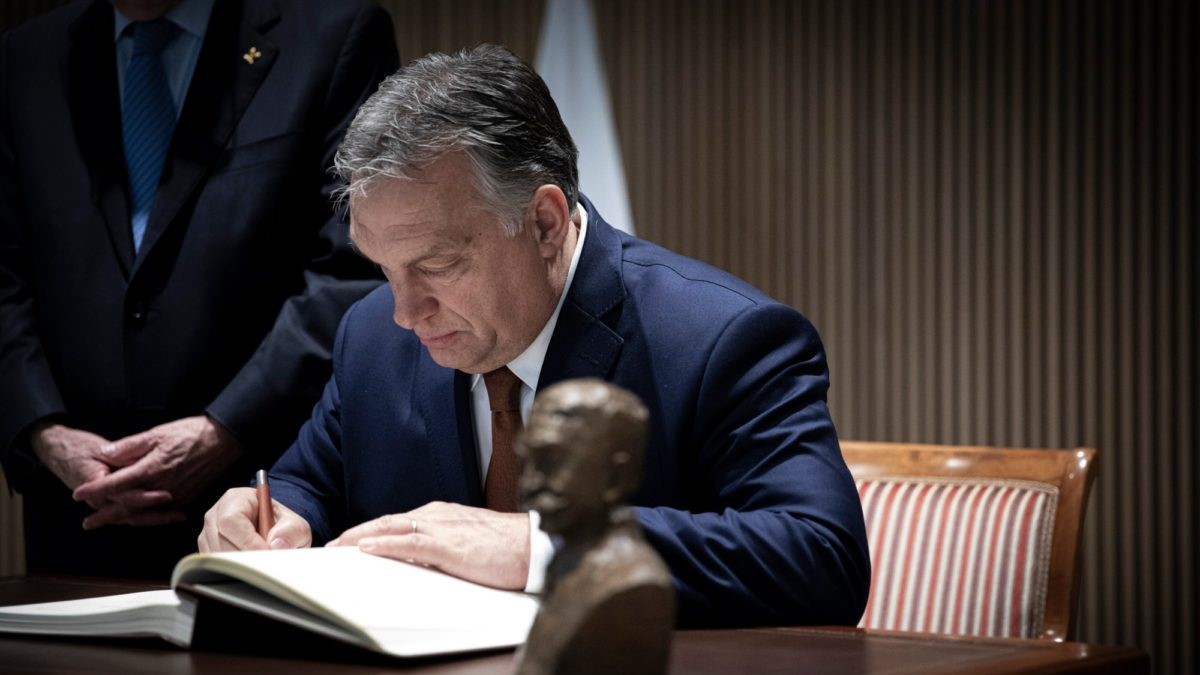
Prime Minister Viktor Orbán marked the Jewish New Year by sending a letter of greetings to Hungary’s Jewish community, emphasizing the country’s role as a ‘calm and safe island’ in a world of growing challenges. Just last week, Israeli Ambassador Jakov Hadas-Handelsman met with Mazsihisz President Andor Grósz to underline the unity between the Jewish people in Hungary and Israel ahead of the upcoming Rosh Hashanah celebrations.
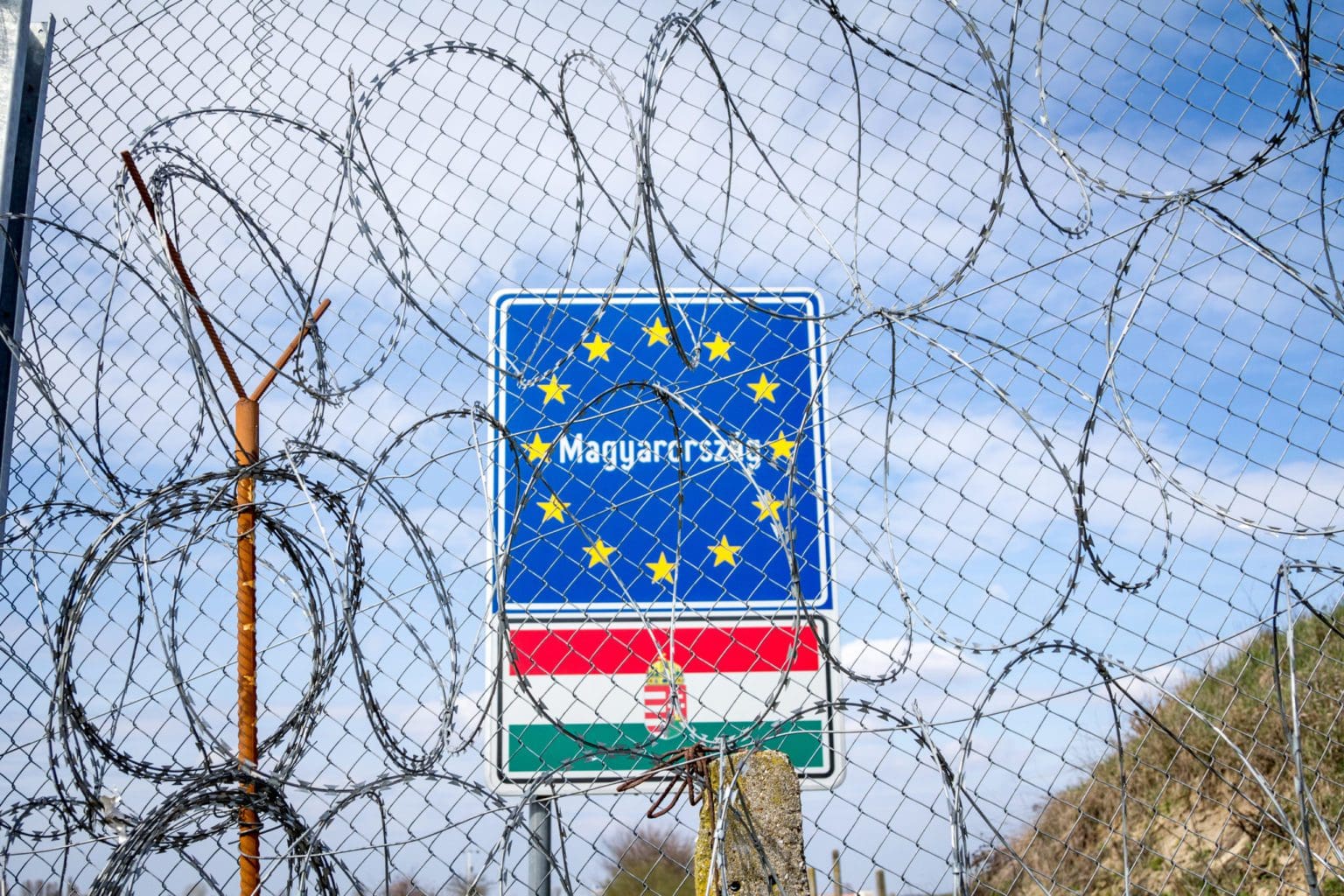
A survey conducted by the Center for Fundamental Rights has revealed that the vast majority of Hungarian voters expect the European Union to contribute financially to the costs of the defence against illegal migration. Nearly two-thirds of respondents also consider the European Court of Justice’s ruling against Hungary unjust, further highlighting the strong public rejection of Brussels’ migration policies.

Minister of Transportation Miri Regev of Israel thanked the Hungarian government on behalf of Israeli PM Benjamin Netanyahu for its unwavering support for Israel since the 7 October Hamas attack at the second International Pro-Israel Summit, hosted by the Center for Fundamental Rights in Budapest, Hungary. Witnesses of the attack also took the stage at the event.
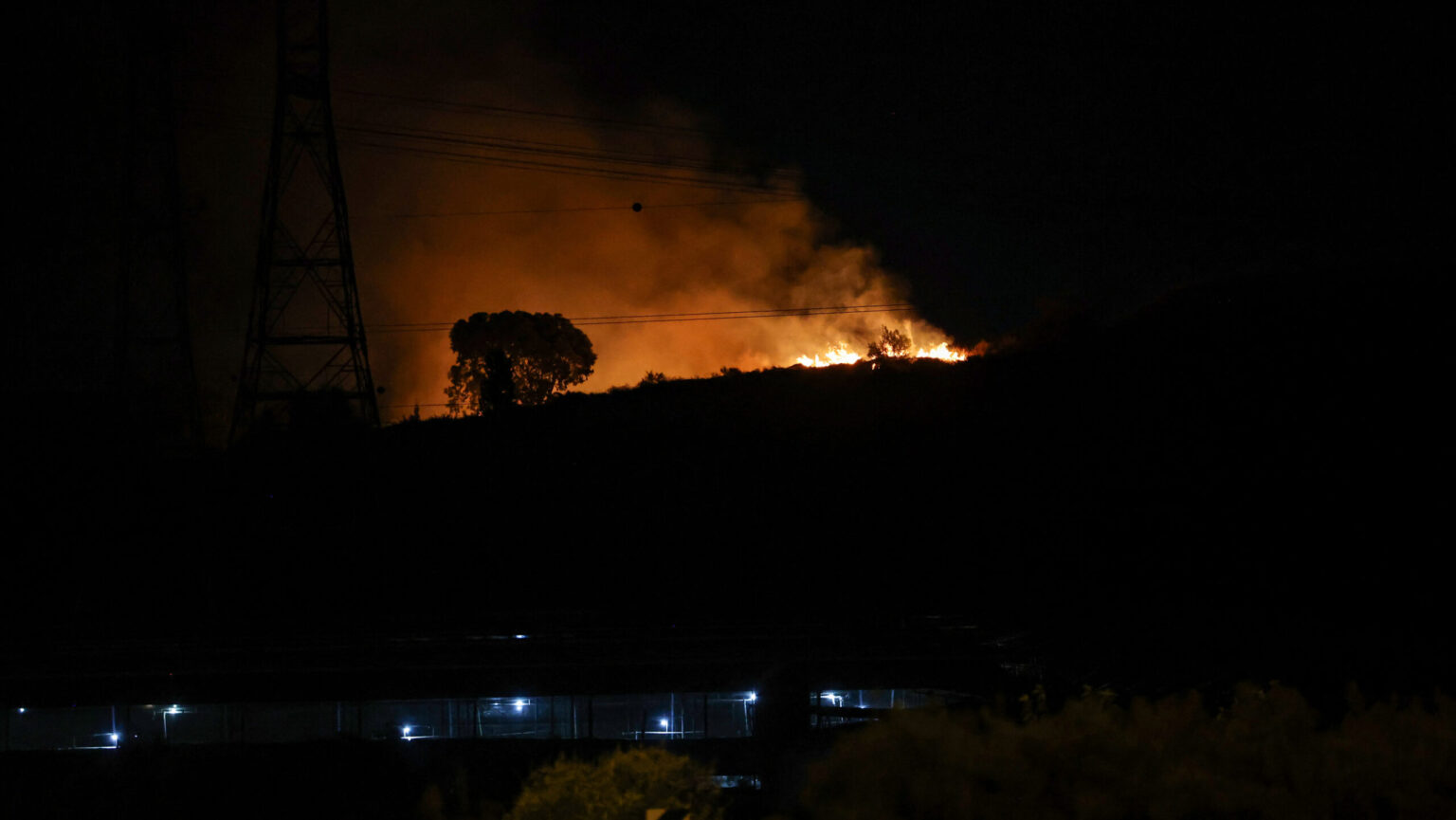
Iran launched a major missile attack on Israel on Tuesday, just hours after the Jewish state began a ground offensive against Hezbollah in Lebanon. Hungarian Prime Minister Viktor Orbán convened a meeting of the government’s National Security Cabinet and also condemned the Iranian attack in a post on X.

The Hungarian company Proofminder has been named one of the winners of the AgVenture 2024 competition, hosted by the European Bank for Reconstruction and Development (EBRD). The programme aims to support the development of green technologies in the agricultural and food production sectors. Proofminder’s AI-based platform and drone technology help farmers increase yields, reduce chemical use, and protect biodiversity.

By the end of October, the asphalting of the high-speed oval track at the Zalaegerszeg automotive test track will be completed, with its full operation set for May next year. In addition to high-speed trials, the new track will be suitable for stress testing of braking systems, suspensions, and cooling systems.

Atlas Intel has gotten the popular vote margins correct within 0.3 percentage points in the US in the last two election cycles. Their most recent polling data has Donald Trump leading Kamala Harris by 2.9 points in the popular vote; while their swing state polling data has him winning the election with 290 electoral votes. However, other public opinion firms have published different results.
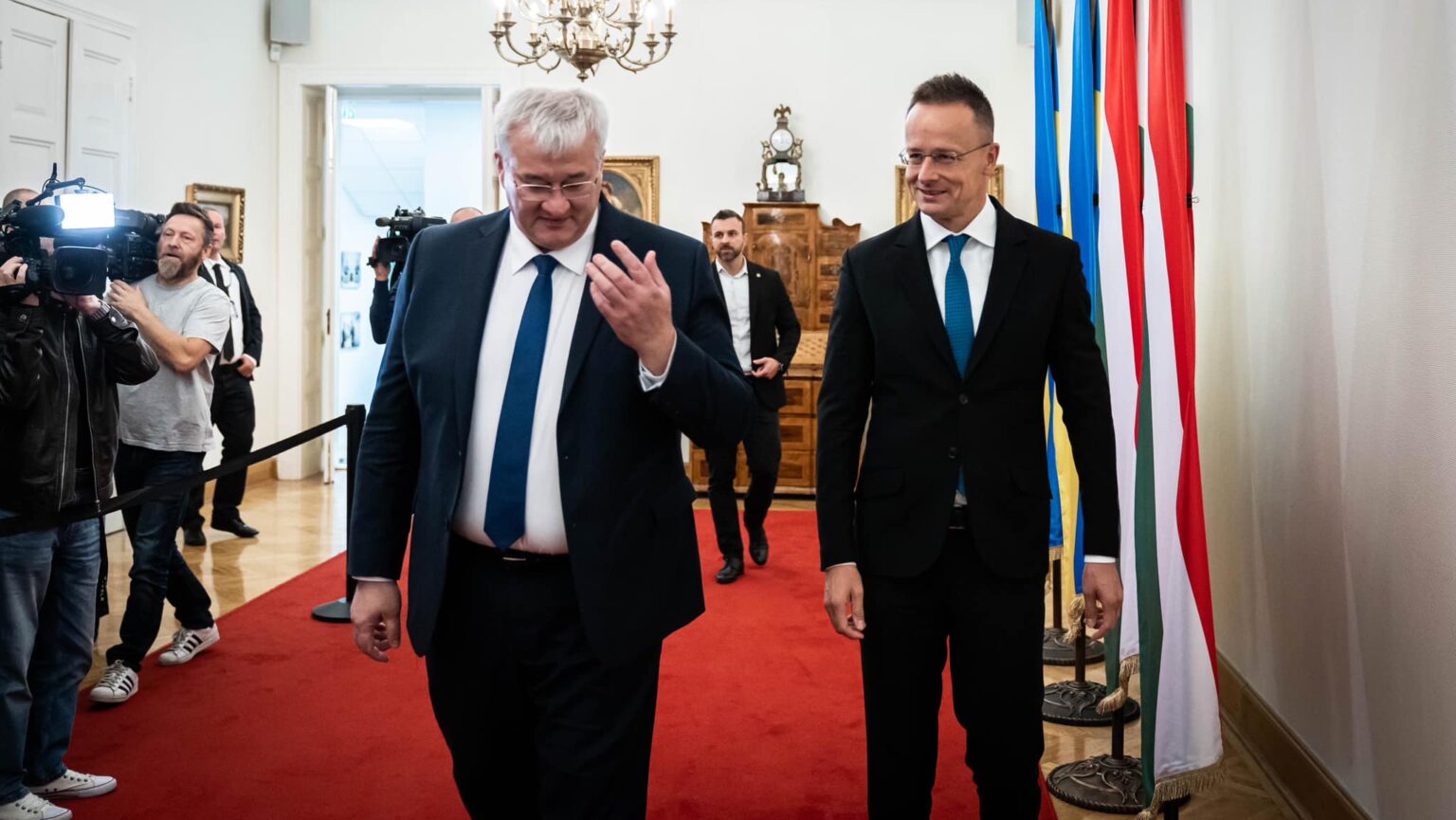
‘Our meeting convinced me that we have every reason to hope that the will to develop neighbourly relations is mutual, and that it is common that these neighbourly relations can, over time, develop into good neighbourly relations,’ Hungarian Minister of Foreign Affairs and Trade Péter Szijjártó highlighted following a long-awaited meeting with his Ukrainian counterpart on Monday in Budapest.
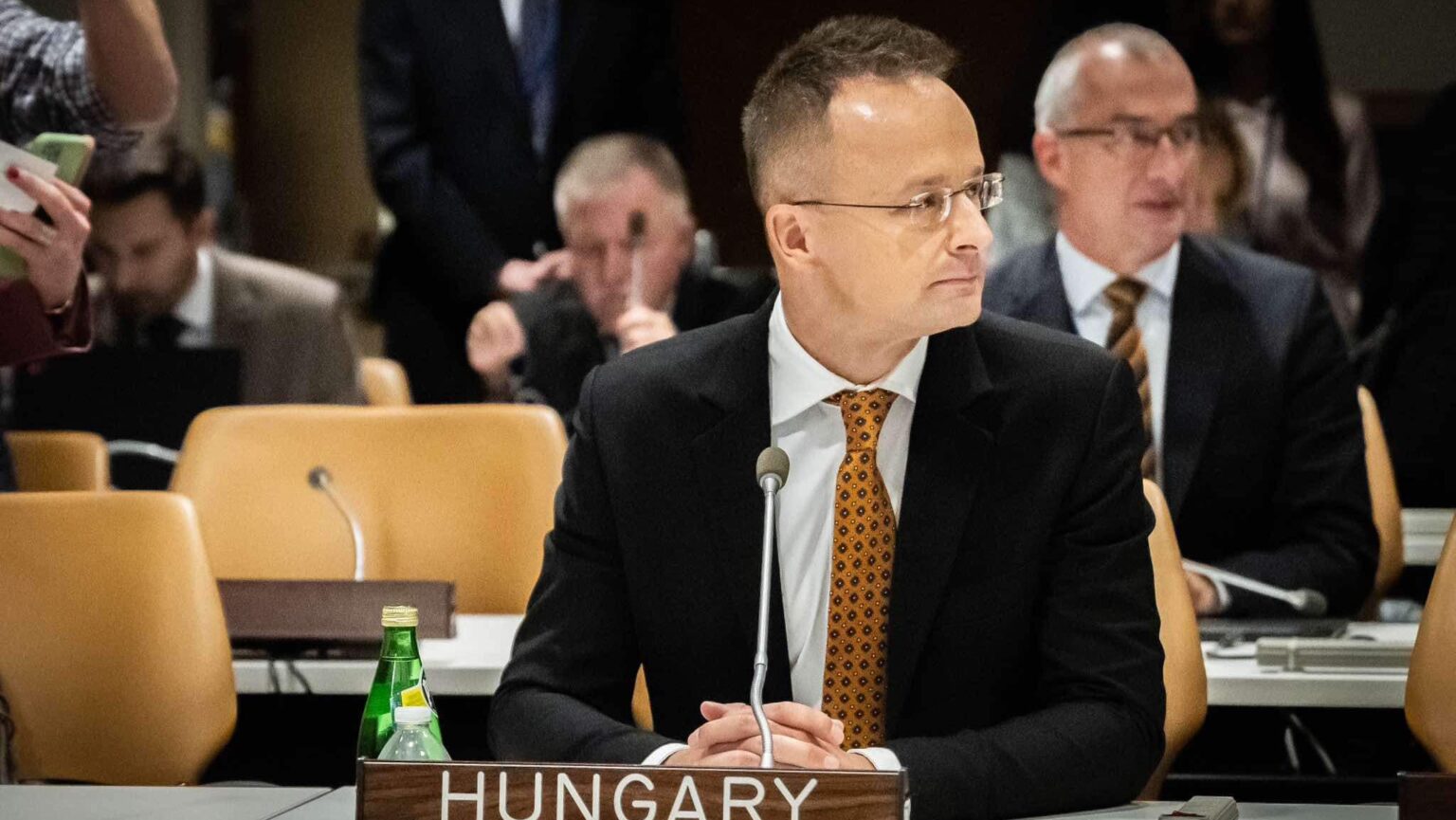
The ‘Friends of Peace’ group was established at the United Nations last Friday on Hungary’s initiative. Led by China and Brazil, the 15-member group aims to facilitate the initiation of peace talks regarding the war in Ukraine and promote the implementation of the key points of the Sino–Brazilian peace plan.

The Hungarian Ministry of Defence and the HDF’s joint initiative Szeretem, megvédem! (I love it, I protect it!) started in June, looking to recruit new people into the Army’s territorial reserve units. Minister of Defence Kristóf Szalay-Bobrovniczky has informed the public that since the start of the programme, over 2,000 people have joined.
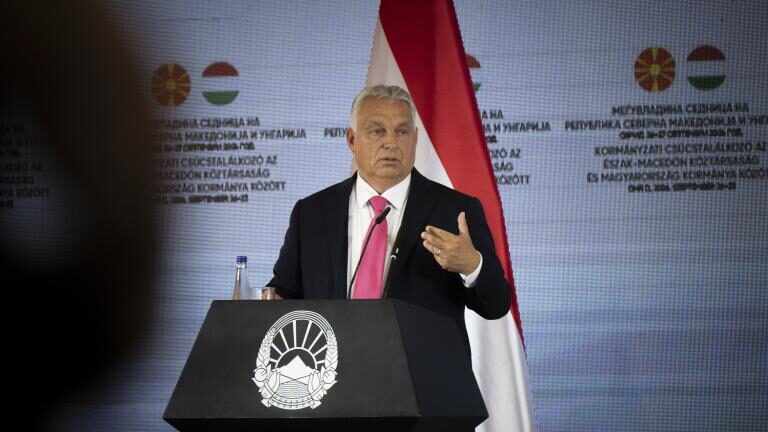
Viktor Orbán paid an official visit to North Macedonia, where he also attended a joint meeting of the Hungarian and North Macedonian governments. Discussions focused on the Balkan country’s EU accession and the fight against illegal migration. The Hungarian PM stated that it is in the EU’s vital interest to complete the integration of the Balkan region as swiftly as possible.
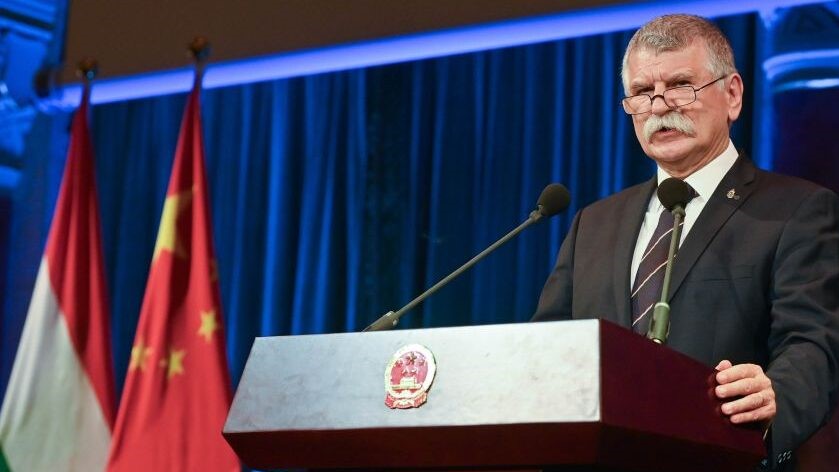
Hungary and China are celebrating the 75th anniversary of the establishment of diplomatic relations between the two countries in 2024. To mark the occasion a reception was held in Budapest, where House Speaker László Kövér stated that the deepening of Sino–Hungarian cooperation is not a threat, but an opportunity.

The world-famous American soft drink company Coca-Cola has received a lot of backlash from its Christian customers in the United States after it was discovered that the word ‘Jesus’ was not allowed to be put on the cans in their personalized can campaign, but the names of other religious figures, such as Allah. Buddha, and even Satan, were allowed.

In a recent podcast, Balázs Orbán drew a comparison between the 1956 Revolution and the war in Ukraine. His remarks, taken out of context and misinterpreted, were swiftly exploited to smear the government of Hungary. Prime Minister Viktor Orbán responded by stressing that the war in Ukraine must not be allowed to overshadow the memory of the heroes of 1956, and that Hungary’s position must always be articulated accurately and unambiguously.
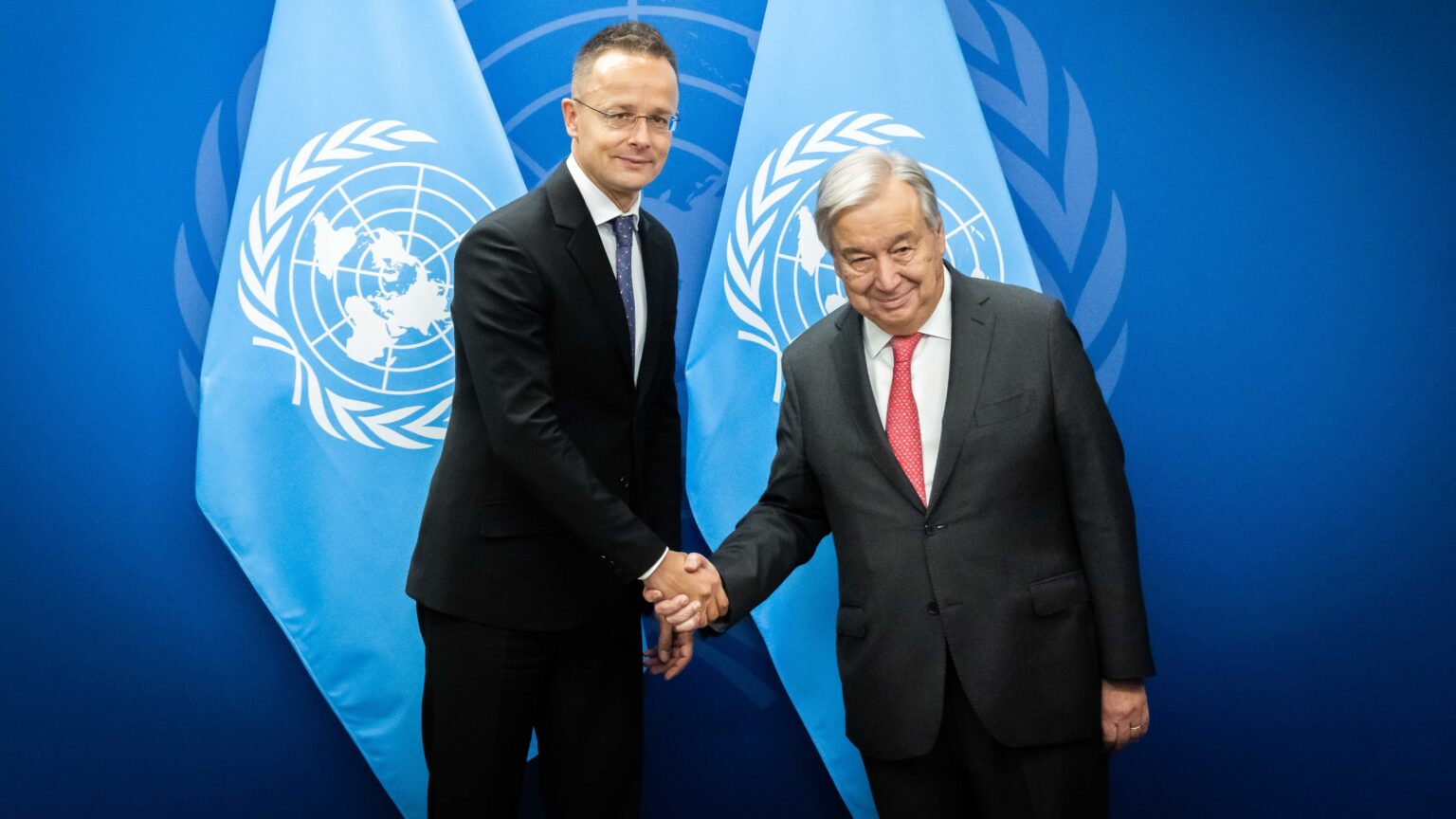
Hungary’s Foreign Minister Péter Szijjártó called on UN Secretary-General António Guterres to mediate a dialogue between the United States and Russia. Following talks in New York, Szijjártó emphasized the pressing global security risks posed by the lack of communication between major powers, warning of the danger of a new Cold War and urging a return to the UN’s founding mission of fostering international dialogue.

The Hungarian Ministry of Energy has confirmed that the reduced utility prices will remain in effect during the final quarter of 2024, ensuring that Hungarian households continue to enjoy the cheapest gas in Europe. By updating the relevant regulations, the ministry aims to secure affordable and uninterrupted heating throughout the upcoming winter season.
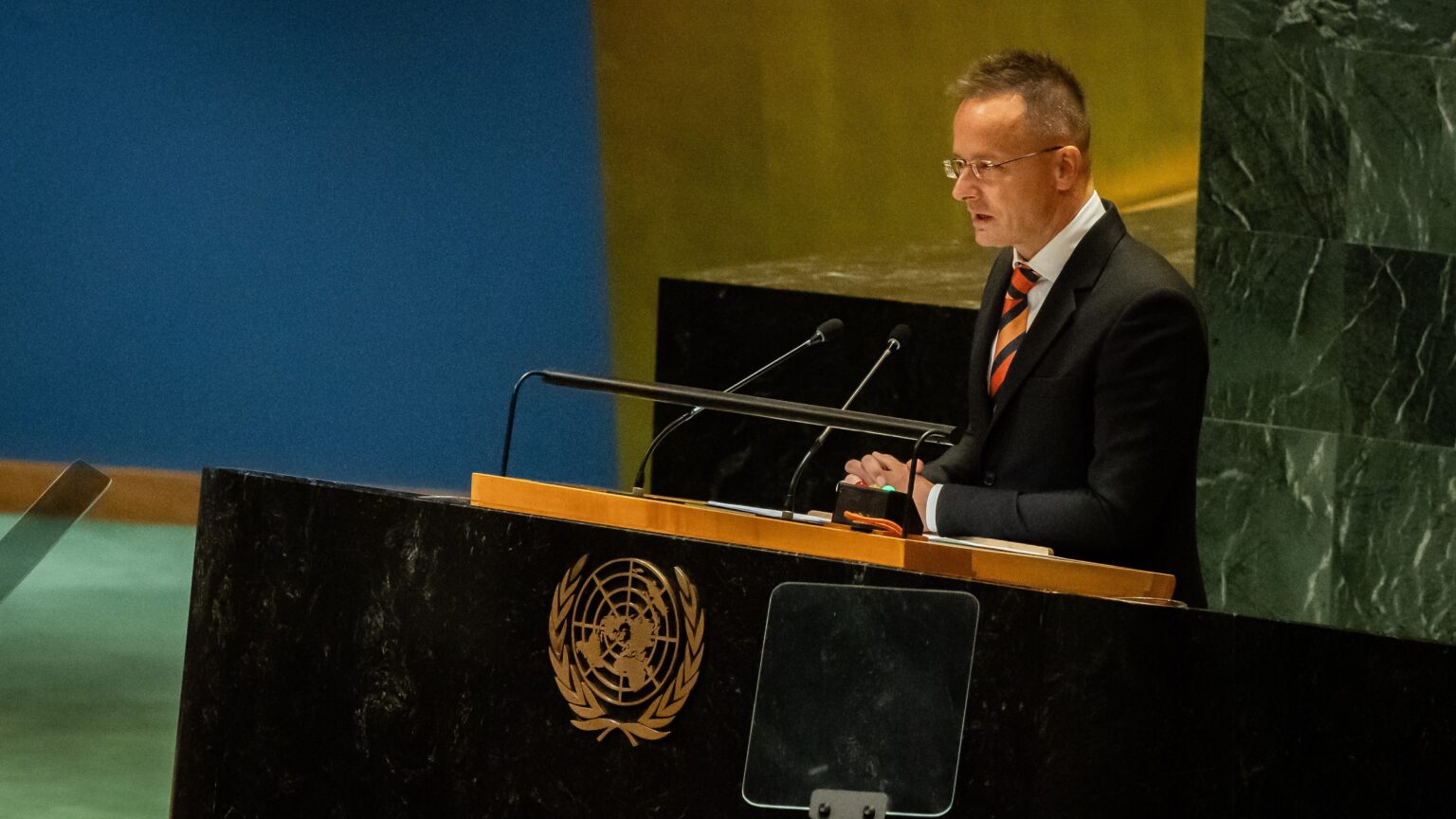
In a recent interview with the Jewish News Syndicate outlet conducted in New York, Hungarian Foreign Minister Péter Szijjártó underlined that Israel is ‘a strategic partner, a strategic ally’ to Hungary, while Budapest has a ‘pragmatic, practical relationship’ with Iran, based on economic cooperation. However, ‘it is obvious that on many issues, we see the world in a totally different way,’ he clarified.
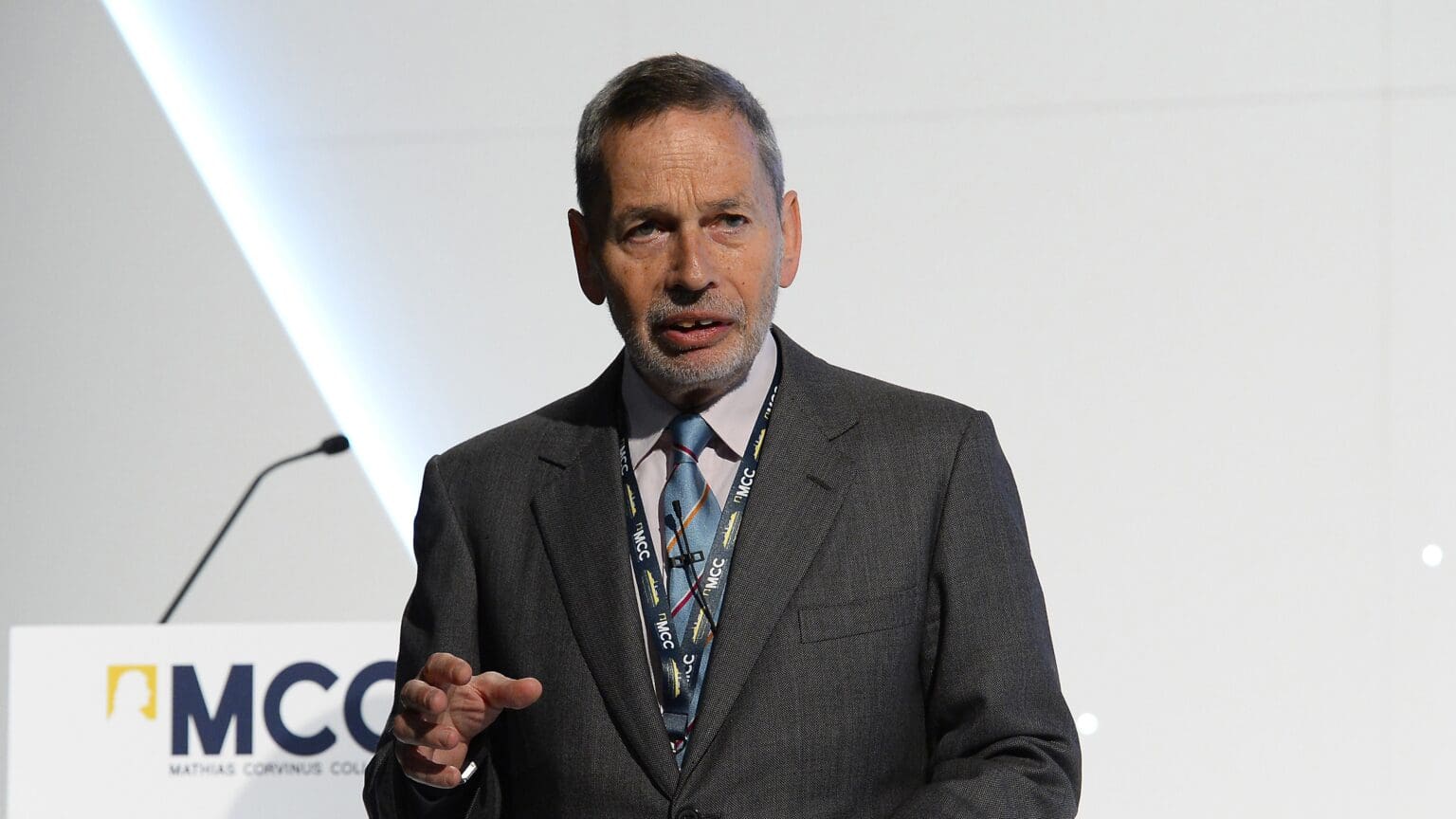
The launch of MCC Brussels Director Frank Füredi’s latest book was cancelled at a Brussels bookshop on the day of the event, presumably due to left-wing political pressure. The situation closely mirrors the controversy surrounding the National Conservatism Conference in April, when a Brussels district mayor attempted to use police force to suppress right-wing voices.

Former President of Hungary Katalin Novák announced in early September that she will take on new responsibilities, continuing to address global demographic challenges as co-founder and co-CEO of the non-profit organization XY Worldwide. Novák recently met with Elon Musk and Giorgia Meloni, where they discussed the possibility of the American billionaire supporting her new initiative.

To support families who are raising or planning to have children, the government will introduce a new measure from 1 October to make it easier for self-employed people who opt for special taxation as well as for primary agricultural producers to claim the CSOK Plus and the Rural CSOK loans, and the baby expecting subsidy. The aim is to make these benefits more accessible to self-employed people. In their case, banks used to take only 10 to 20 per cent of their income into account when assessing their loan applications but will now be obliged to recognize at least 50 per cent of their earnings.

Users on X (formerly Twitter), corporate and private alike, were captivated by the images of the recent flooding of the Danube River in Budapest, Hungary. Photos of the flooded capital city spread across the social media site. Thankfully, the water levels have come down to normal since, and the flooding passed with no loss of human life.